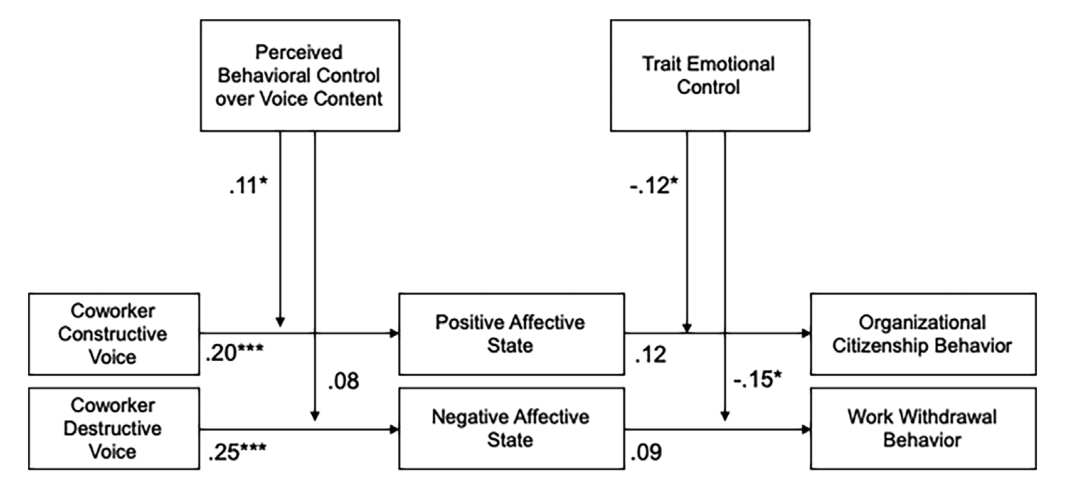“If we never listen to feedback, we'll never improve. That's certainly true, but in a world where everyone has an opinion, who should you actually listen to?”
— Dorie Clark, Wall Street Journal Bestselling Author
Recently, a new study of “Can I control my actions and emotions? Examining when and why employees react adaptively or maladaptively to coworker voice” was published in Applied Psychology: An International Review by Dr. Jiajin Tong, assistant professor of School of Psychological and Cognitive Sciences, Peking University.
The paper reveals that employees in organizations activate corresponding positive or negative affective responses to coworker voice, and further, positive affective responses lead to positive organizational behavior, while negative affective responses lead to negative organizational behavior. Moreover, employees perceived behavioral control over voice content and their ability of emotional control play a moderating role in the aforementioned psychological processes. When employees perceive more behavioral control over voice content, constructive voice from colleagues will stimulate more positive emotions. When employees have lower levels of emotional control, the impacts of affective reactions on corresponding organizational behaviors can be enhanced. That is, positive affective state leads to more positive organizational citizenship behavior, while negative affective state leads to more negative withdrawal behavior.

Managers can help employees gain higher behavioral control over coworkers’ voice content, which bolsters the positive affective state brought by constructive coworker voice. Managers can train and improve employees' emotional control ability to a certain extent, which can reduce negative organizational behavior induced by negative affective state. In addition, of course, managers can provide employees with trainings on how to constructively provide voice to colleagues for positive organizational psychological climates and good behavioral outcomes.
Zhou, Xiang is the first author of this article, who is currently at the School of Management, Sun Yat sen University. SinHui Chong is the second author, who is an assistant professor at the Nanyang Business School, Nanyang Technological University, Singapore. Dr. Tong, Jiajin is the corresponding author.
This research received financial support from the National Natural Science Fund of China (#31971013, #72271007) and the Foundation of Beijing Key Laboratory of Behavior and Mental Health.
Zhou, X., Chong, S., & Tong, J.* (2023). Can I Control My Actions and Emotions? Examining When and Why Employees React Adaptively or Maladaptively to Coworker Voice. Applied Psychology: An International Review, DOI: 10.1111/apps.12485


